Photos
Irving Mayer
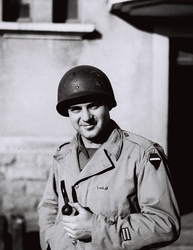
During his freshman year, Irving Mayer attended a presentation from Army recruiters, at Pratt Institute in NY. The need for intelligent, creative men to form a top-secret, tactical deception unit, resulted in his enlisting in the 23 HQ Special Troops. Along with the other 155 men of 406th Combat Engineers Company, he was trained in real combat and provided perimeter security for the Ghost Army. Under Lt. (now retired General) George Rebh, he also helped provide the fake “atmosphere” that accompanied the camouflage, sonic, and radio deception being perpetrated on the Nazis by the Ghost Army. During Operation Brest, Irv grabbed and tossed a live grenade from his crowded transport, possibly saving his friends in the 406th from severe injury.
He was always proud of his service in the 406th but said very little because he was sworn to secrecy. He did tell his brother and his best friend Bernie that he was in “the phantom army that helped General Patton, and served under Bradley.”
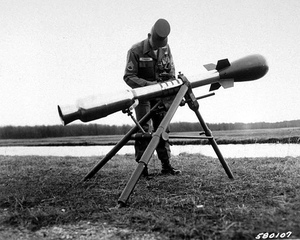 After the war, Irv returned to Pratt Institute, and graduated with a BS in Mechanical Engineering. His strong patriotic commitment to the United States continued as he went to work on military weapons during the Cold War. Working as part of a 3-man team, Irv developed the first nuclear weapon that could be utilized by infantry. The Davy Crockett nuclear warhead system was deployed in West Germany as a first line defense against a possible Russian invasion through Berlin. In May, 1961, President Kennedy drafted a letter to these three inventors for their service to the US and “significant contributions to the defense of the United States."
After the war, Irv returned to Pratt Institute, and graduated with a BS in Mechanical Engineering. His strong patriotic commitment to the United States continued as he went to work on military weapons during the Cold War. Working as part of a 3-man team, Irv developed the first nuclear weapon that could be utilized by infantry. The Davy Crockett nuclear warhead system was deployed in West Germany as a first line defense against a possible Russian invasion through Berlin. In May, 1961, President Kennedy drafted a letter to these three inventors for their service to the US and “significant contributions to the defense of the United States."
Irv would have been proud and happy that his lifelong secret of service in the Ghost Army would finally be told in such a noteworthy fashion. From his family-Thank you Rick Beyer!
Editor's note: A small selection from the hundreds of photographs taken by Irving Mayer during his wartime service can be found below. All photos courtesy of Rob Mayer, except for the photo of the Davy Crockett Nuclear Gun.
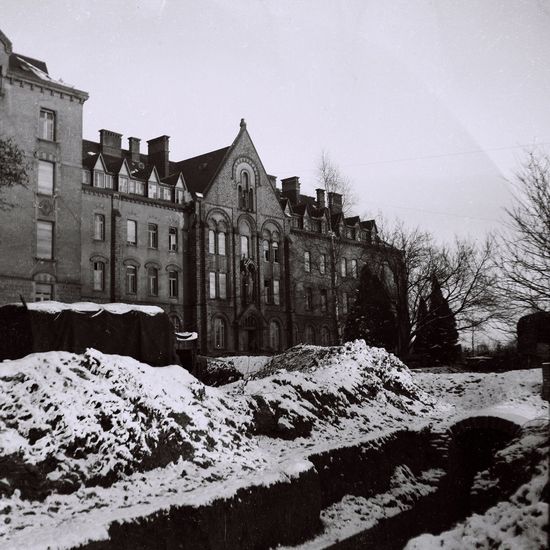
The Seminary in Luxembourg where many of the men in the Ghost ARmy were bivouaced from September to December, 1944.
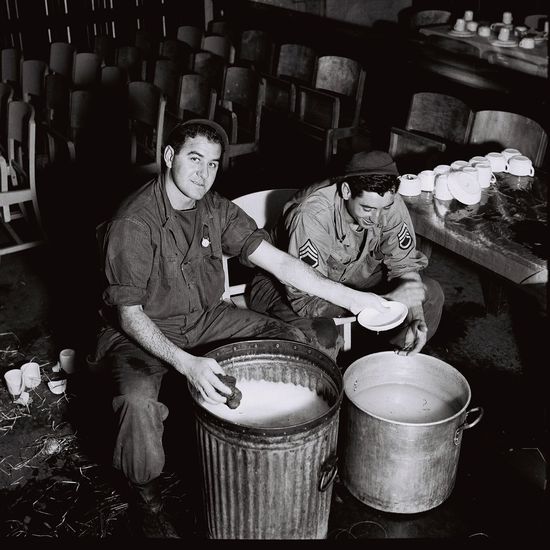
Cooking potatoes for Thanksgiving Dinner!
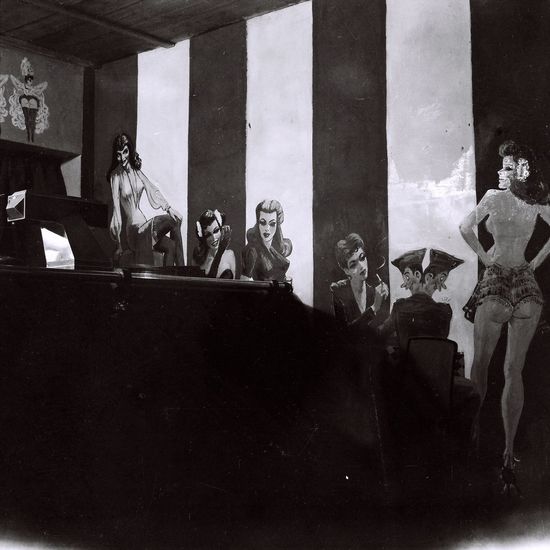
These are most likely props for an amateur theatrical to wile away the empty hours between missions while the unit was stationed in Luxembourg.
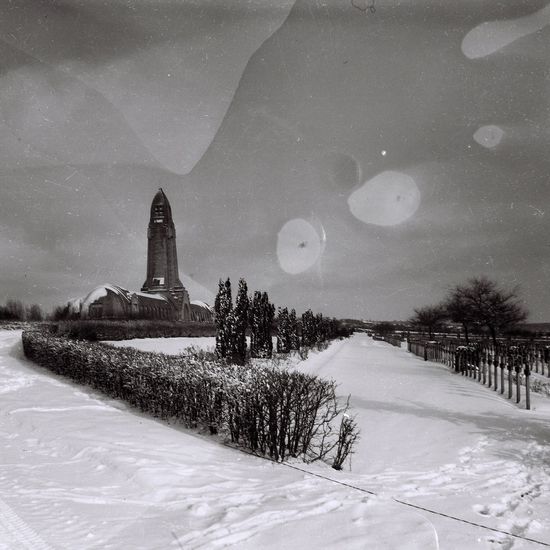
During the Battle of the Bulge, the Ghost Army retreated to Verdun, site of the biggest battle of WWI. More than half a million soldiers died there during WWI, and many of them remain buried there today
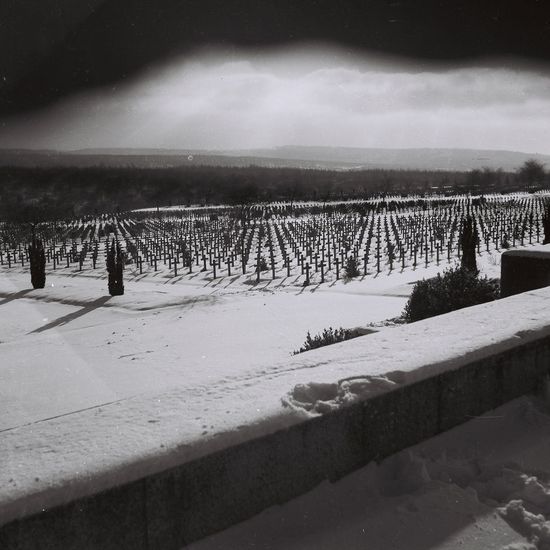
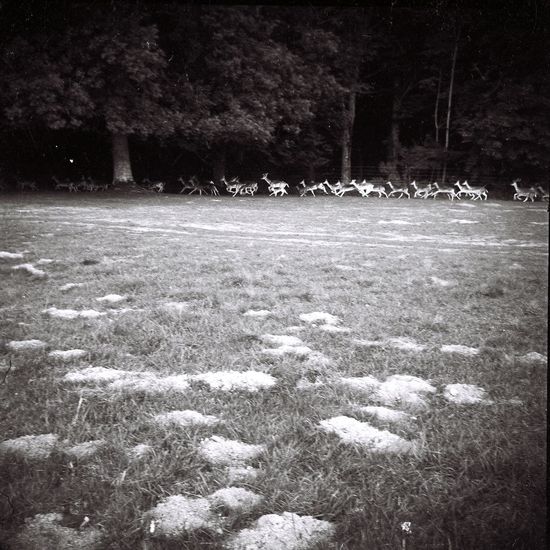
Irv's son Rob believes this picture may have been taken at Walton Manor, where the Ghost Army was stationed before heading to France.
He was always proud of his service in the 406th but said very little because he was sworn to secrecy. He did tell his brother and his best friend Bernie that he was in “the phantom army that helped General Patton, and served under Bradley.”

Irv would have been proud and happy that his lifelong secret of service in the Ghost Army would finally be told in such a noteworthy fashion. From his family-Thank you Rick Beyer!
Editor's note: A small selection from the hundreds of photographs taken by Irving Mayer during his wartime service can be found below. All photos courtesy of Rob Mayer, except for the photo of the Davy Crockett Nuclear Gun.

The Seminary in Luxembourg where many of the men in the Ghost ARmy were bivouaced from September to December, 1944.

Cooking potatoes for Thanksgiving Dinner!

These are most likely props for an amateur theatrical to wile away the empty hours between missions while the unit was stationed in Luxembourg.

During the Battle of the Bulge, the Ghost Army retreated to Verdun, site of the biggest battle of WWI. More than half a million soldiers died there during WWI, and many of them remain buried there today


Irv's son Rob believes this picture may have been taken at Walton Manor, where the Ghost Army was stationed before heading to France.












